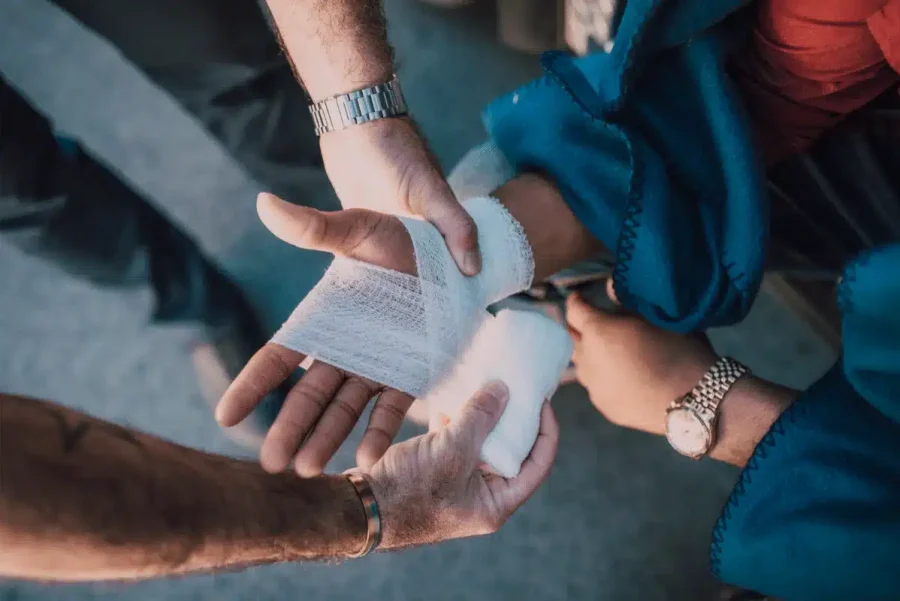Solid evidence is critical to the success of any legal claim. However, sometimes vital evidence is held by those who don’t want you to have it. When other people are in charge of key evidence, it’s important to ensure that it isn’t destroyed before you can use it.
That’s where spoliation letters come in. A spoliation letter is a formal legal notice sent to instruct a potential party to preserve any specific evidence relevant to a developing claim. This prevents them from altering, destroying, or “losing” key documents and information to avoid liability.
Read on to learn more about how the experienced New York personal injury lawyers at Richmond Vona use spoliation letters to protect our clients’ legal rights.
What Is a Spoliation Letter?
Spoliation is when a potential party to a legal claim intentionally or negligently destroys, alters, or fails to preserve evidence relevant to that claim. Spoliation letters serve as a written notice that the recipient is legally obligated to preserve and maintain certain evidence and documentation.
As an example, in tractor-trailer accident cases, the trucking company will possess a wide range of records, reports, and other evidence that is material to the claim. A letter of spoliation will demand the preservation of this evidence.
Benefits of Sending a Spoliation Letter
Spoliation letters may prompt an organization to trigger a legal hold, or a pause in its normal processes for disposing of older records. This can help prevent evidence like surveillance footage from being overwritten as part of standard retention procedures.
Intentional destruction of records is harder to prove than negligence, but a spoliation letter can help establish that the party in charge of the evidence was aware of its importance and should have moved to protect it from accidental harm.
Consequences of Ignoring a Spoliation Letter
It should be clear that the subject of a personal injury claim has a general obligation to preserve evidence when litigation is likely. Unfortunately, in reality, they do not always do so. If a party blatantly ignores a spoliation letter and fails to preserve important evidence, they can face serious legal consequences, including:
- Adverse inference: At trial, the judge may instruct the jury to assume any missing, damaged, or destroyed evidence would have hurt the case of the party that failed to preserve it, leaving the full extent of wrongdoing up to the jury’s imagination.
- Monetary sanctions: The court may order the party to pay fines for their conduct.
- Damage to credibility: As with adverse inference, meddling with evidence is damning in the court of public opinion.
- Instant victory or loss: In egregious cases, a judge can entirely toss a claim from a plaintiff or issue a default judgment against a defendant who spoliated evidence.
Spoliation Letter Example
Month Day, 2025
VIA CERTIFID MAIL, RETURN RECEIPT REQUESTED
Spoilation Letter Example
Buffalo, NY
Re: Incident of Month Date, Year
Dear Sir or Madam:
My office has been retained to investigate personal injuries that our client, Jane Doe, sustained on January 1, 20xx, as a result of a slip and fall on ice on the premises of the Location located at 123 ABC Street Buffalo, NY. Please forward this letter to your insurance carrier and ask them to contact me as soon as possible. Further, please refrain from any contact with Ms. Doe going forward.
In addition, please allow this letter to serve as a notice to preserve the following:
- Incident/accident/investigative reports pertaining to the subject incident;
- Video surveillance/photographs depicting the occurrence of the aforementioned incident;
- Any and all maintenance logs pertaining to snow removal, de-icing, and/or salting of the sidewalks, walkways, and parking lots on the premises of 123 ABC Street Buffalo, NY;
- Any and all maintenance agreements/contracts pertaining to snow removal, de-icing, and/or salting of the sidewalks, walkways, and parking lots on the premises of 123 ABC Street Buffalo, NY.
YOUR FAILURE TO RESPOND TO THIS LETTER MAY SERIOUSLY JEOPARDIZE YOUR LEGAL RIGHTS AND ANY INSURANCE COVERAGE AVAILABLE TO YOU. IN ADDITION, SHOULD THE EVIDENCE NOT BE PRESERVED, AND SHOULD THIS CASE PROCEED TO LITIGATION, WE MAY MOVE THE COURT FOR A SPOLIATION OF EVIDENCE CHARGE.
Very truly yours,
RICHMOND VONA, LLC
An attorney’s name typically goes here
What is the Purpose of a Spoliation Letter?
Spoliation letters are important to personal injury cases both from practical and strictly legal perspectives. Reasons to send a spoliation letter include:
Creating a Legal Duty
Once a party receives a spoliation letter, they’ve been formally notified of their duty to preserve evidence. While that obligation may already exist in many cases, the letter makes it explicit as a formal, written request.
Strengthening Your Case
The letter serves as a formal warning against spoliation of evidence, creating a paper trail that undermines any claims of ignorance or error. If a party fails to preserve key records after receiving a spoliation letter, it can strongly support a bid for sanctions like adverse inference.
Influencing Negotiations
A spoliation letter also simply shows the other party that you mean business. When you signal that you’re backed by a skilled legal team and are willing to fight to protect your rights, you may receive more favorable settlement offers.
"Evidence preservation is often critical to the outcome of a case. In one matter we handled, a property owner intentionally erased video surveillance that would have clearly shown a dangerous condition had existed in their store for a long time, and that employees repeatedly ignored it. Our client slipped, fell, and broke her leg, an entirely preventable injury. Because we had sent a spoliation letter immediately, as we do in every case, the insurance company understood that erasing the footage could lead the judge to instruct the jury to assume the missing evidence was unfavorable to them. This significantly increased the pressure on the insurance company, and ultimately led to a much larger settlement for our client. It’s a powerful reminder of why quick action and evidence preservation are so important in personal injury cases.”
– Founding Partner John Richmond

Who Should Send and Receive a Spoliation Letter?
A knowledgeable personal injury attorney should send a spoliation letter on your behalf. Recipients can include any entity with records or information potentially relevant to your case, such as:
- The at-fault parties, whether they’re individuals, businesses, or government entities
- The insurance companies backing the at-fault parties
- Employers, property owners, or others responsible for the at-fault parties
- Any witnesses who potentially have photos or videos of the scene
- Hospitals or medical providers
When Should I Send a Spoliation Letter?
Evidence is strongest immediately after an accident, particularly for vehicle damage, security camera footage, or anything else that can be easily fixed, hidden, or deleted. Seeking to preserve records as soon as possible gives you the best chance of avoiding spoliation and building a strong claim.
A trusted New York personal injury attorney can help you get started on spoliation letters for any of the following case types:
What Should a Spoliation Letter Include?
When drafting a spoliation letter, your lawyer should always include the following elements:
- Incident details: Your attorney should clearly identify the subject accident, including the date, time, location, and parties involved.
- Statement of potential litigation: The letter should plainly state that the recipient should anticipate a future legal claim or notify them that one is ongoing.
- Specific evidence to preserve: The letter should include a detailed list of all relevant evidence you expect the recipient to have.
- Statement of duty to preserve: Your lawyer should explicitly state the recipient’s legal responsibilities stemming from the letter, and what potential sanctions they can face should they fail.
- Instructions on compliance: The letter should direct the recipient to notify all relevant personnel of the preservation request and pause any policies and procedures related to routine record destruction.
- Contact and delivery information: Your attorney should include their contact details in the letter and send it using a trackable method such as certified mail.
Types of Evidence to Include in a Spoliation Letter
Your lawyer should include a thorough, exhaustive list of any relevant evidence the recipient may possess, including:
- Physical evidence: Your letter should tell the recipient to preserve any damaged vehicles, property, equipment, or other items in the condition they were immediately after the accident.
- Documents: The recipient should maintain any accident reports, maintenance logs, financial records, contracts, or other documents relevant to your claim.
- Electronic data: Any video footage, black box information, GPS data, computer files, or server logs relevant to your case should be preserved.
- Communications: Your attorney should make sure to request all internal communications, emails, text messages, phone records, social media posts, or other records of discussion pertaining to your claim.
- Witness information: The recipient should keep any contact information and statements from witnesses to the incident.
Talk to a Personal Injury Lawyer About Preserving Evidence
At Richmond Vona, our personal injury lawyers offer aggressive, experienced legal advocacy to our clients. We will help you maximize your financial compensation. If you need help preserving evidence, our legal team is here for you. To schedule a no-fee, no-obligation personal injury consultation, please contact us online or call 716-500-5678 today. From our office in Buffalo, we represent injured victims all over the region, including in Erie County, Monroe County, Livingston County, and Orleans County.
